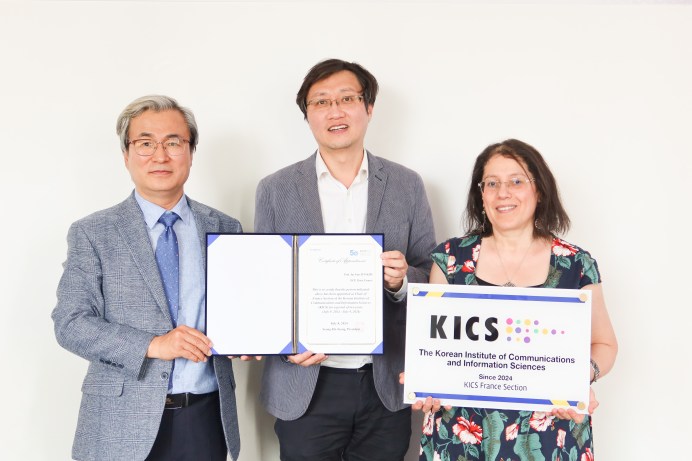
From left to right: Seong-Ho JEONG, President of KICS, Jae Yun JUN KIM,
and Samia BOUZEFRANE.
On Monday, July 8th, researchers from LyRIDS, students from ECE, and Korean researchers from KICS (Korean Institute of Communications and Information Sciences) conducted a workshop to exchange their research related to connected objects, cybersecurity, wireless communications, and AI. A total of 9 presentations took place. Summary.
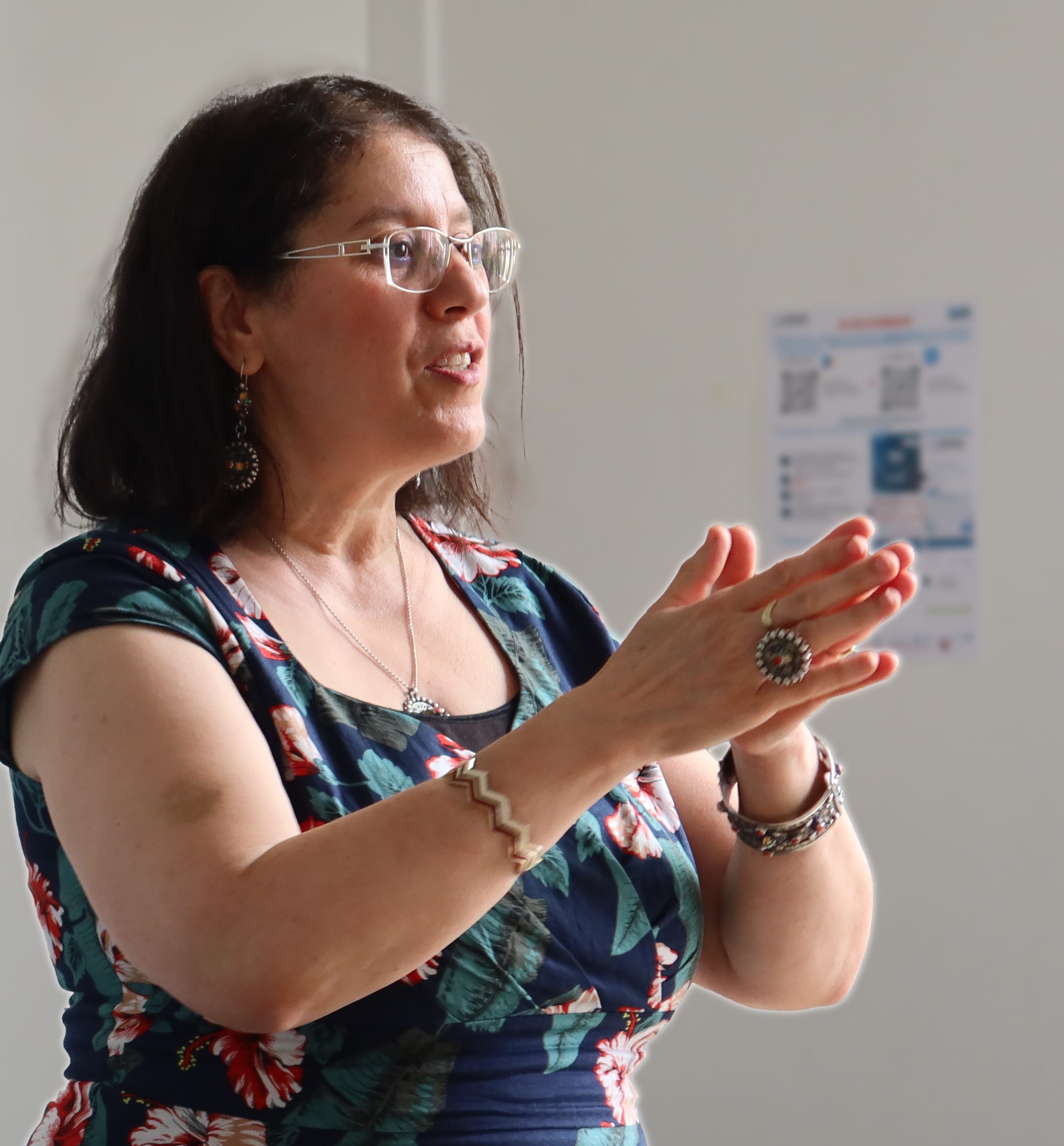
Trust and security in the context of connected objects and the cloud
Samia Bouzefrane, Professor at the Conservatoire National des Arts et Métiers (CNAM) and Director of the CEDRIC Laboratory, addressed the problem of trust and security in smart applications that rely on the IoT/Cloud environment. She reviewed techniques that can be used in the context of cloud computing, such as homomorphic encryption with machine learning or differential privacy, as well as trusted platforms suitable for securing connected objects.
Human Activity Recognition with Radar and Camera Sensors
Imagine a program capable of identifying joy, sadness, and stress by analyzing a human face. Imagine it can determine if you are sleeping, sitting, or exercising. This is achieved by analyzing your image as well as your heart and respiratory rates. This is what Dong Seog Han from Kyungpook National University presented.
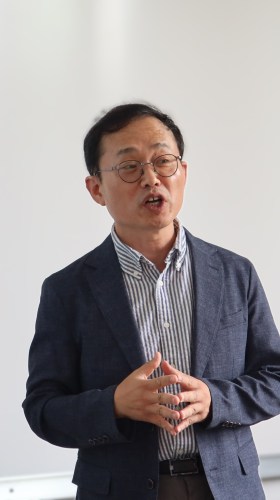
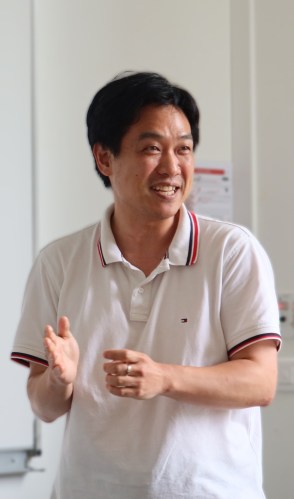
Digital Twin and IoT: Case Study on Real-Time Positioning Visualization
Keun-Woo Lim is an Associate Professor at Télécom ParisTech. His presentation focuses on the application of digital twins for real-time localization and tracking of mobile devices. The presentation examines the trade-off between real-time representation accuracy and energy efficiency and provides preliminary observation results based on empirical analysis using a UWB positioning platform. Through this analysis, the presentation suggests various methods to address this issue, which could include optimization methodologies, machine learning, and AI-based approaches.
Enhancing Data Privacy in Machine Learning with Perceptual Encryption
Seokjoo Shin, a professor at Chosun University, covered the use of perceptual encryption (PE) techniques within privacy-preserving machine learning (PPML) to protect sensitive user data in cloud-based machine learning environments. He provided an overview of machine learning techniques for privacy protection and described the characteristics, advantages, and disadvantages of PE-based PPML technologies. Additionally, he discussed current research outcomes and future research directions.
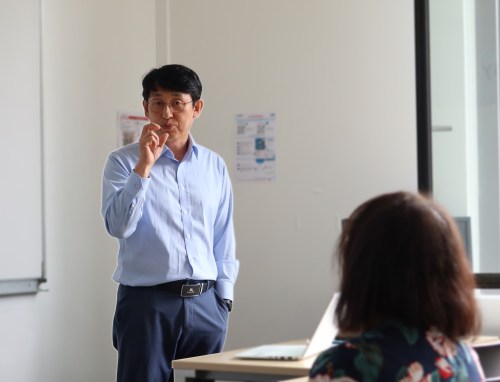
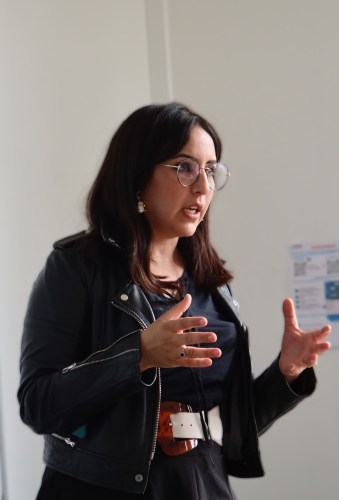
Vehicular Communication from the Past to the Future
Naila Bouchemal, a professor at ECE and researcher at LyRIDS, presented a history of telecommunication networks for autonomous driving. The increasing demands open up a world of possibilities leading to new 6G technology based on AI.
Cybersecurity in Metaverse Communications
Insoo Sohn, a professor at Dongguk University, discussed cybersecurity in AI and the metaverse. Cybersecurity is one of the main technologies considered in South Korea’s National Technology Strategy for 2024. It is a technology that prevents or mitigates cyberattacks targeting computers, networks, data, and, more recently, AI. At the Network Intelligence Lab at Dongguk University, various research projects related to AI security in digital twins are conducted and have been published in leading journals.
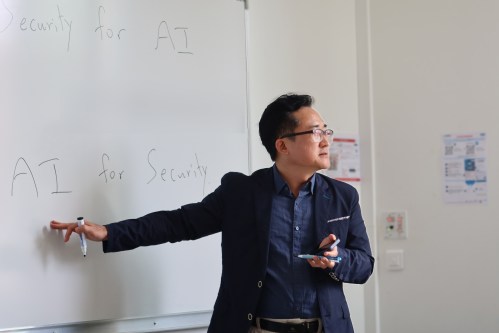
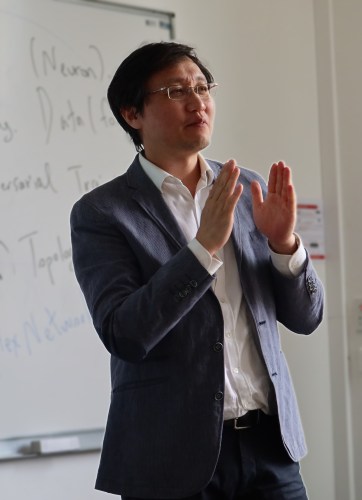
Some Case Studies on Multi-Agent Reinforcement Learning
Jae Yun Jun Kim a professor at ECE and researcher at LyRIDS, explains that many phenomena occurring in society can be considered as the results of multi-agent systems. Modeling and controlling these phenomena is a significant challenge but also of great interest. This can be possible through the approach of multi-agent reinforcement learning (MARL). In this presentation, recent works on modeling and controlling two multi-agent systems (one collaborative and one competitive case) are presented to illustrate the aforementioned challenges and the impact of MARL.
Recent Advances in 6G Communications and Networks
Sungrae Cho, a professor at Chung-Ang University, explained the recent advances in next-generation communication networks, specifically 5G and 6G. He highlighted his current projects, such as the fourth phase of Brain Korea (4.8 million USD) and the IT Research Center (ITRC) related to next-generation 5G and 6G communication networks, with a scale of 6 million USD. Through these two projects, he emphasized the need for international cooperation with France.
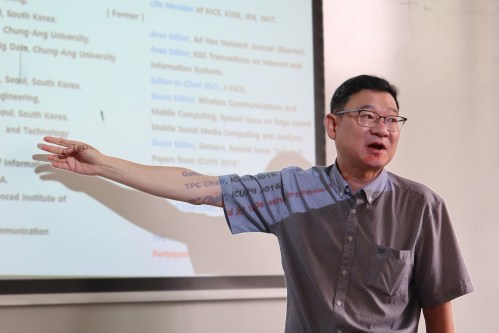
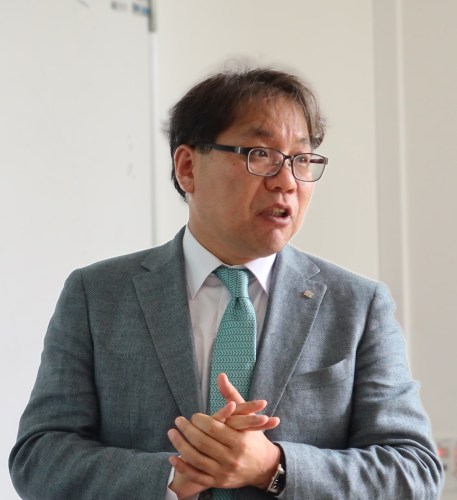
Research Trends in Blockchain Technology
Ki-Hyung Kim, a professor in the Cybersecurity Department at Ajou University, provided a quick overview of research on connected objects, authentication issues, and cybersecurity in the medical sector.
The steering committee for this joint action is composed of
Seong Ho Jeong, President of KICS, from Hankuk University (KICS)
Dong Seog Han, from Kyungpook University
Ki-Hyung Kim, from Ajou University
Assia Soukane, Director of Research at LyRIDS at ECE
The organizing committee for the event is composed of:
Sungrae Cho, one of the Vice Presidents of KICS, from Chung-Ang University
Sang-Chul Kim, one of the Vice Presidents of KICS, from Kookmin University
Seokjoo Shin, one of the Vice Presidents of KICS, from Chosun UniversityJae
Jae Yun Jun Kim, the representative of KICS in France, from the Paris campus of ECE


